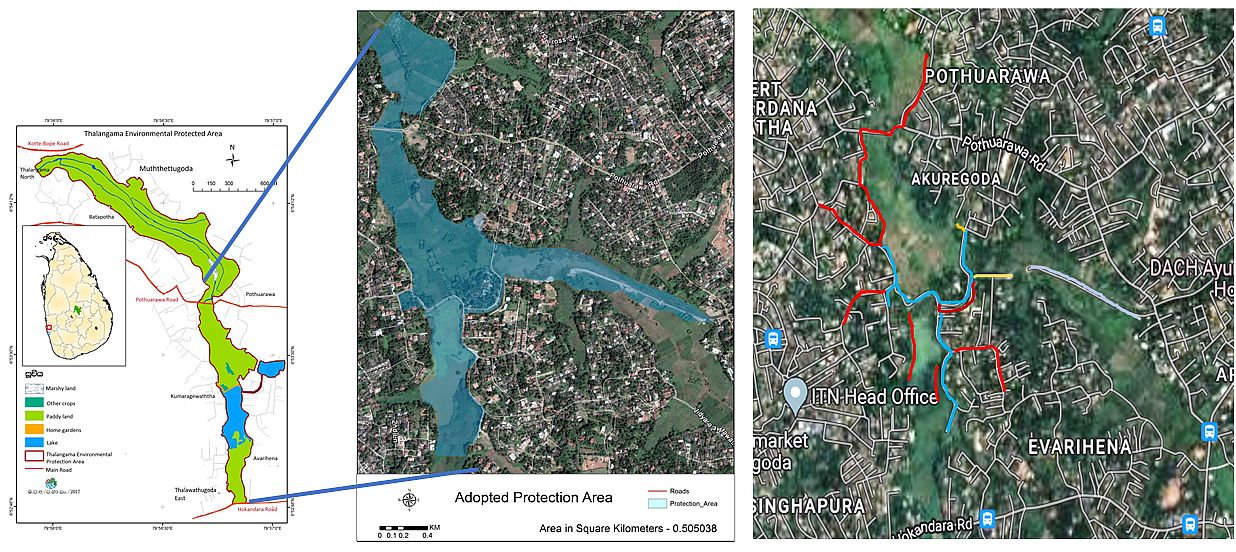Our Activities
ABOUT US AND OUR WORK
About us:
Thalangama Wetland Watch is a self-funded, non-profit, community-based initiative of citizens living in lake vicinity, who are highly motivated to protect their natural environment and human health. We feel that all citizens have responsibility and we like to set an example instead of waiting for others to take the first step. We are operating in close collaboration with institutional stakeholders (CEA, Irrigation Dept., NAQDA, SLLDC, KMC, FOGSL, RDA, …) and any other community stakeholders building on our common interest in protecting our inheritance for future generations. This is an in-kind community service without any financial gain for the organizers and volunteers (see http://wetlandwatch.lk/files/how_you_could_help.htm).
- Our core team of volunteers:
- Co-founder and operations coordinator (Dr. Pay Drechsel)
- Spokespersons (Mohan Fernando, Dr. Jody Miller)
- Paid assistant (Mr. Ravi)
- Account controller (Mrs. Avanthi)
- Legal advisor (Mrs. Nadeesha)
- Web manager (www.wetlandwatch.lk)
- The local Irrigation Department representative (Mr. Sarath) for activity alignment and approval.
- And a pool of community members who help us on demand or every day in kind or for a small allowance.

There is a larger Thalangama lake WhatsApp group of which the Wetland Watch is part and where e.g. illegal waste dumping, stakeholder meetings, and other issues concerning the lake are reported and receive instant (re)actions.
Our infrastructure includes waste collection equipment and access to seven boats (four are ours and three boats via neighbours).
About our activities:
- Removing trash from the lake and its surrounding
In late 2016 we started with the removal of about 50m3 of waste, which had accumulated over the years. From then on, the activities focused on new trash of any size or type, which visitors leave around the Thalangama and neighboring Avarihena tanks, and their adjacent water bodies, like beer cans or larger waste bags dumped overnight.
 Click to zoom, and for more information
×
Click to zoom, and for more information
×
As of Oct 2025, Ravi, Pay, Pala, “Dodo’’, and some others are cleaning about 3000 meters of streets (blue lines, see map) once or twice every day (7.00-9.00 am; 16:00-18:00 pm) with other routes cleaned weekly or when more volunteers join. The water surface is being monitored once a week by boat for trash and water hyacinths. Within certain drains we built trash barriers while dustbins have been set up at key points along the roads. Both are cleaned daily.
The daily cleaning around the lake serves awareness creation, and to capture in particular waste like shopping bags which wind and rain will otherwise blow or wash into the lake, where they are more cumbersome to retrieve.
In collaboration with the Kaduwela Municipality, we are separating all metal, glass, PE bottles, etc. and get them weekly collected for recycling.
We also check larger waste bags for their possible owners, to report them to the authorities and/or visit them personally to express our sincere disapproval.
- Removal of invasive plant species
Since we started, we are controlling the spread of water hyacinths on the Thalangama lake. Some time back water hyacinths covered about half of the water surface. With over 200 boat loads of plants removed, the spread is now under control. This floating weed can multiply rapidly and is reducing the already low level of dissolved oxygen, affecting e.g. fish life. The downside of fighting water hyacinths is that once removed other aquatic weeds like Watermoss (Salvinia sp.) and the submerged Coontail (Ceratophyllum demersum) and carnivorous bladderwort (Utricularia sp.) spread.
- Stakeholder dialogue facilitation
Given that the lake has a large number of stakeholders, it happened frequently that new initiatives are only known to some, but not all. In particular, the environmental protection status of the area which limits possible activities by law, is often forgotten. The Thalangama Wetland Watch as a community initiative helps to correct such omissions by facilitating the involvement of all authorities.
- Supporting research and environmental education
With our access to a number of boats and equipment for water quality testing, we are supporting research from local universities and NGOs which serve environmental sciences and the protection of the lake area.
We visit schools, display posters at dumping hot spots, and explain good environmental practices. We also initiate or support clean-up actions for groups at both lakes or in neighboring communities, and offer school children supervised boat rides to help cleaning the lake.
- Reducing dengue and support of environmental flows
Our cleaning of cans, cubs and bottles supports also our efforts to reduce dengue in the area. Many bottles show mosquito larvae. We also remove blockages in drains and streams to avoid stagnant water, and monitor the Northern sleuth gates to maintain a minimum environmental flow for ecosystems health when the gates are closed.
- Flora and Fauna
We are seeking homes for abandoned pets and take care of roadkill and other dead animals. We are also supporting young trees which get easily forgotten once a ‘tree planting day’ is over, through watering and the removal of climbing weeds. For our weekly monitoring of water hyacinths, please see above.
- Removal of invasive plant species